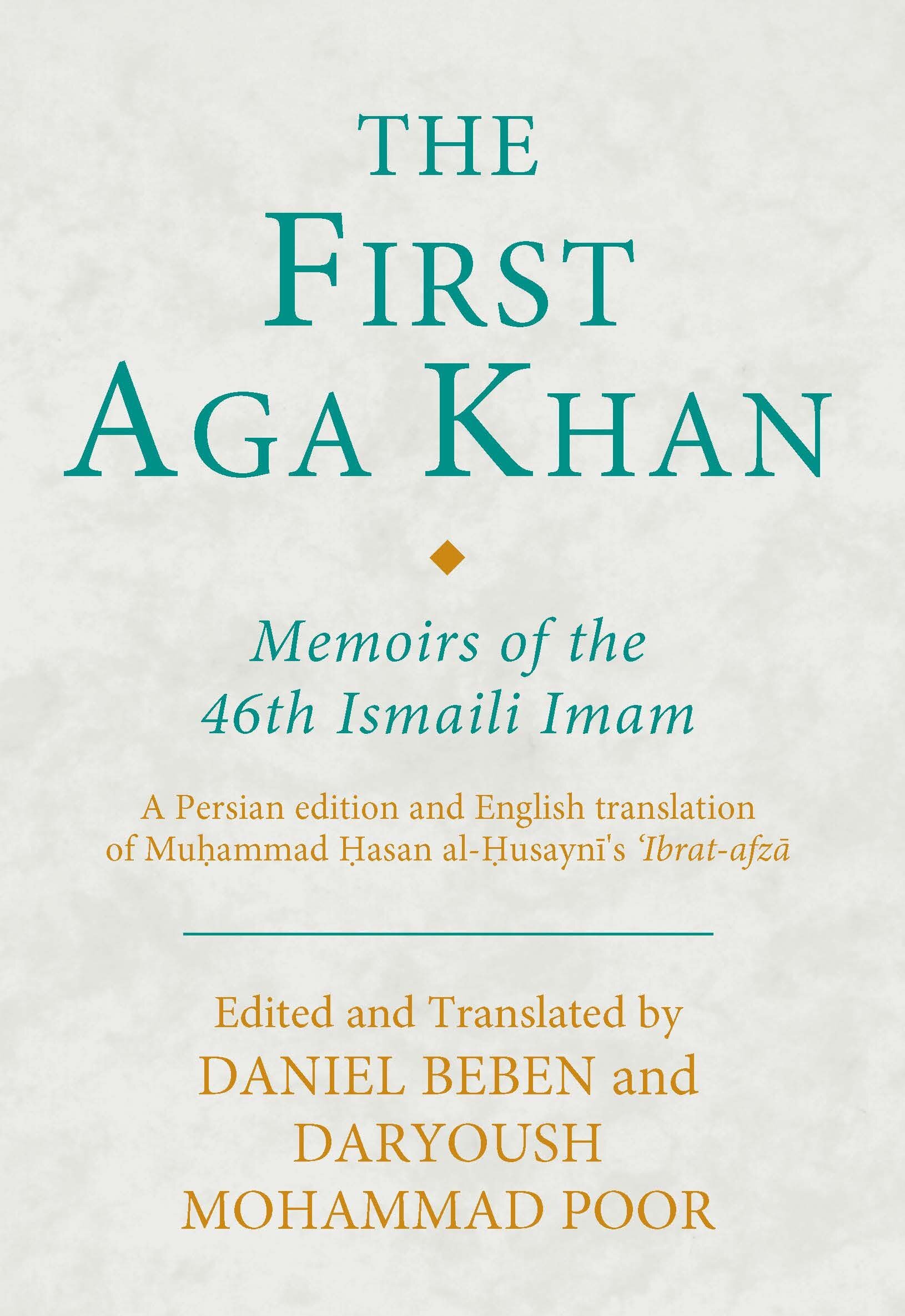THE FIRST AGA KHAN: Memoirs of the 46th Ismaili Imam (London: IIS – IB Tauris, 2018)
By Daniel Beben and Daryoush M. Poor
Creating a critical edition of a manuscript along with an annotated translation accompanied by a substantive introduction is truly a labor of love and careful scholarship. Existing printed versions of this partial memoir of the first Aga Khan were found to have numerous errors, and the text itself has previously only been translated into Gujarati. This work is a Persian edition and English translation of the ‘Ibrat-afzā of Imam Ḥasan ‘Alī Shāh Aga Khan I. It is accompanied by a very useful introduction that aims to provide “an interpretive framework for understanding the significance of the Aga Khan’s career” in order to offer a “necessary corrective to some of the gaps and misunderstandings found in the current scholarship on the topic. … [to] allow for a more holistic view of the Aga Khan’s career … including his roles as an Ismaili Imam and as a political actor, which have largely been treated separately or seen in tension with one another in previous scholarship.” (3)
Beben offers a new analytic framework through exploring the representation of the Nizari Imams as sayyids, Sufis, and holy men in their religious, political, and mediational roles and thus attempts to harmonize Aga Khan I’s activities and function as a politically engaged spiritual leader. This brief but richly detailed biography details the administrative triumphs and political struggles encountered by the Imam in Iran and his subsequent move to the Indian subcontinent. It affords brief poetic glimpses into the larger spiritual worldview in which the Imam orients his place in the universe and the struggles he faced, as well as the material and tactical support of his followers. Mention is made of the Persian, Afghan, British, and Indian personages that were germane to unfolding events, as well as the battles in which the Imam was engaged. In sum, this work provides a fascinating account of a turbulent period and provides the basis for further exploration of the Imam’s interactions with his jamats in the subcontinent. The otherwise informative introduction to the book could have been enriched further by addressing the voices in the community in India like Imam Begum as well as the issues raised by contemporary writers like Nile Green, Amrita Shodan and Teena Purohit.
Daniel Beben received his PhD in History and Central Eurasian Studies at Indiana University and is currently Assistant Professor of History and Religious Studies at Nazarbayev University in Kazakhstan. His research focuses on the history of Ismaili and Sufi communities in pre-modern Central Asia, Afghanistan and Iran. His recent publications include a Persian text edition and translation of the ʿIbrat-afzā, the memoirs of the Ismaili Imam Hasan ʿAli Shah (Aga Khan I), co-authored with Daryoush Mohammad Poor (published by I.B. Tauris and the Institute of Ismail Studies in 2018). His current research projects include a monograph on the history of Ismailism in Central Asia and a co-authored book on genealogical traditions in the Badakhshan region.
Dr. Daryoush Mohammad Poor is a Senior Research Associate in the Department of Academic Research and Publications at the Institute of Ismaili Studies and a lecturer for the Department of Graduate Studies. His first monograph, Authority without Territory: The Aga Khan Development Network and the Ismaili Imamate (2014) is a fresh theoretical engagement with contemporary institutions of the Ismaili imamate. His most recent book is Command and Creation: A Shi‘i Cosmological Treatise, is a Persian edition and English translation of Muhammad al-Shahrastani’s Majlis-i maktūb (2021). He is also a Fellow of the Higher Education Academy in the UK.


